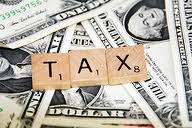 DEVICE MAKERS PASSING ON DEVICE TAX (Orthopedics This Week)
DEVICE MAKERS PASSING ON DEVICE TAX (Orthopedics This Week)
Now that the first $97 million of the new device tax has been collected by the government, it raises the questions of who is paying the price of the 2.3% tax.
We’ve seen numerous reports that thousands of laid-off workers from device companies have paid for the tax with their jobs. Other reports from device makers say that cuts to research and development budgets means patients who will not receive new treatments will suffer.
Purchasers Alarmed
Now hospital purchasing groups are complaining that some device companies are attempting to pass the new tax on to them.
On January 25, 2013, the Healthcare Supply Chain Association (HSCA) and its group purchasing organization (GPO) members expressed alarm over evidence that some medical device manufacturers are shifting the burden of the medical device excise tax directly to American hospitals and other healthcare providers.
HSCA President Curtis Rooney said, “It is disheartening to find that some medical device companies have chosen to tack the tax right onto their invoices. We urge all manufacturers to immediately stop passing the medical device tax on to American hospitals, and ultimately to patients and taxpayers.”
“American hospitals have already lived up to their shared financial responsibility for national health care reform,” added Rooney.
Hospitals say they’ve already kicked in $155 billion in the form of Medicare-payment cuts over ten years to help pay for the health law and that other sectors should pay their share. “We’re disappointed,” said Mike Rock, senior associate director for federal affairs at the American Hospital Association (AHA). Last March, HSCA, AHA, the Federation of American Hospitals, and the Catholic Health Association urged the Internal Revenue Service to draft rules to prevent manufacturers from passing on the cost of the device tax to hospitals.
Invoices Scrutinized
On January 25, The Wall Street Journal reported on a review of letters and invoices from nine manufacturers sent to hospitals.
One letter sent by Carica, Inc., a maker of heart surgery tools, stated, “As a result of this law, we will be forced to charge the 2.3% federal medical device excise tax to you.” Invoices from companies including feeding-tube supplier Applied Medical Technology Inc. and respiratory-valve maker Hans Rudolph Inc. added new surcharges or warned hospitals of price increases to cover the new tax.
The Journal reported that Adam Robinson, a contract manager at Beth Israel Deaconess Medical Center in Boston noticed a new 2.3% surcharge—labeled as a “medical device adjustment”—in a bill for radiology supplies sold by a small company. Procurement officials say they have seen the charges appended to commodity items sold by “mom-and-pop” outfitters.
Baking in Costs
Robinson told the Journal that larger companies, haven’t explicitly tacked on surcharges, but expects that as contracts end, bigger vendors will seek to “bake it in to the contract renewals.” Companies trying to pass on the cost of the tax would feel “a very swift and vocal objection in the marketplace,” said Pete Allen, senior vice president of sourcing operations at the hospital-owned group-purchasing organization Novation.
“While most device manufacturers are taking responsibility for this tax, there are some manufacturers attempting to pass their obligation on to hospitals,” Novation President and CEO Jody Hatcher said in prepared remarks. “This tax should be the responsibility of the manufacturers, and Novation is dedicated to ensuring that member hospitals are impacted by it as little as possible.”
